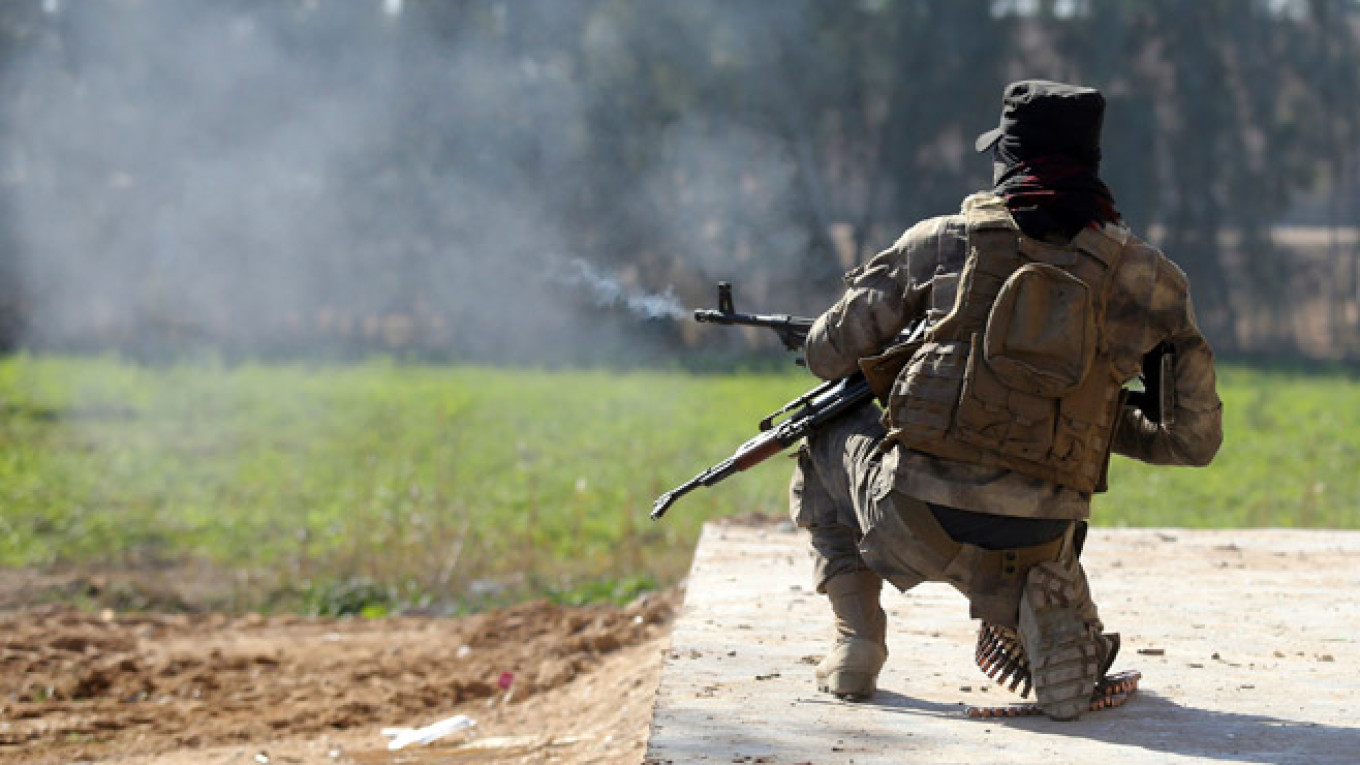An article by Mark Galeotti published recently in The Moscow Times, "The Islamic State Poses No Threat to Russia, Yet" suggests that the recent denunciations of the Caucasus Emirate by Chechen and Dagestani field commanders and their oaths of allegiance to the Islamic State are relatively unimportant. Galeotti asserts that the renunciation of the Caucasus Emirate for the Islamic State "means very little in practical terms," that the Islamic State is not currently seeking to expand its operations abroad, and that the recent attack on Grozny was "militarily futile."
The militants have two main reasons for the shift toward the Islamic State. The first is an expectation for more funding. Since the war in Syria began, international jihadi networks have poured money into the conflict at the expense of other militant Islamist organizations.
The other reason is that these militants live in a radical echo chamber, constantly talking and hearing about nothing but jihad and Islamist values. Therefore, they are increasingly radicalized and more likely recognize the Islamic State as to closer to their views.
Caucasus Emirate leader Aliaskhab Kebekov has denounced suicide bombing, especially by women. The field commanders are likely upset by this because they want to push their violence further.
Second, the Islamic State is absolutely looking to export violence and terror abroad. On a weekly basis, posts appear on Islamic State social media sites that encourage all supporters to engage in general acts of terror, both actual violence and the mere threat of violence, in order to generally "terrorize" the population. Such calls have the approval of senior Islamic State militants.
This "terror" is a two pronged approach. The first is simply to scare the population. Over time, the population will become desensitized to the constant "crying wolf," at which point a real attack is likely to have devastating consequences.
Third, the attack on Grozny was only futile if viewed as a simple terrorist or military action. If viewed as an insurgent action, however, the attack may be seen as advancing the militants' goals.
In the short term, the obvious goal was to embarrass and frustrate Russian President Vladimir Putin, who indeed appeared frustrated when he addressed the nation the next morning. But more importantly, the attack made Chechen leader Ramzan Kadyrov appear weak — the militants mounted a citywide attack under his watch.
The longer-term goals may have been accidental, but were achieved nonetheless. The militants achieved a tactical victory in the destruction of the Press House, a symbolic structure representing the power of the state. Security forces destroyed the entire building for the sake of killing seven militants.
Furthermore, after the attack, Kadyrov instituted a new policy of extrajudicial punishments for the family members of alleged terrorists — a tactic that in other conflicts has led to the population rallying around the terrorists rather than the state.
This has also led to an international backlash as observers note the policy's negative human rights aspects. Terrorists have long used the strategy of luring their opponents into overreaction.
Finally, Galeotti suggests that the decreasing number of attacks in the region amounts to a decrease in the threat of terrorism.
However, I would say that it is a lack of funding that has led to a decrease in attacks and that once the war in Syria and Iraq begins to subside, the jihadi international will once again be able to transfer funds to the North Caucasus.
That, and the return of any number of the militants currently fighting there, is why the Islamic State is currently a ticking time bomb waiting to explode in the North Caucasus.
Blake Holley is a co-founder of Hollico Researching and a recent Master's graduate from MGIMO University.
A Message from The Moscow Times:
Dear readers,
We are facing unprecedented challenges. Russia's Prosecutor General's Office has designated The Moscow Times as an "undesirable" organization, criminalizing our work and putting our staff at risk of prosecution. This follows our earlier unjust labeling as a "foreign agent."
These actions are direct attempts to silence independent journalism in Russia. The authorities claim our work "discredits the decisions of the Russian leadership." We see things differently: we strive to provide accurate, unbiased reporting on Russia.
We, the journalists of The Moscow Times, refuse to be silenced. But to continue our work, we need your help.
Your support, no matter how small, makes a world of difference. If you can, please support us monthly starting from just $2. It's quick to set up, and every contribution makes a significant impact.
By supporting The Moscow Times, you're defending open, independent journalism in the face of repression. Thank you for standing with us.
Remind me later.


